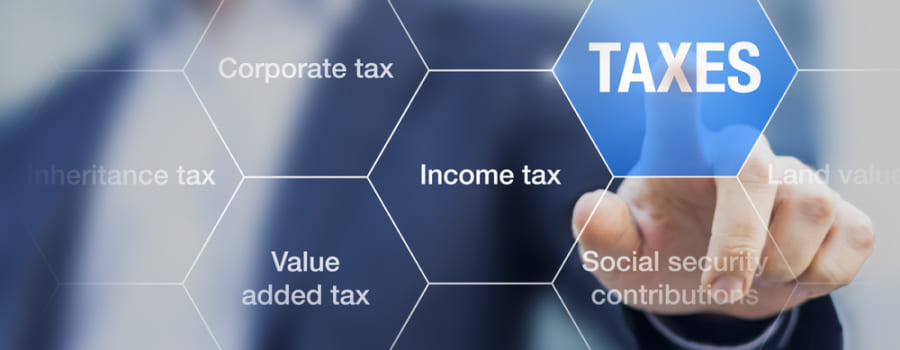An effective tax* system is a platform for advancing a country’s economic interests and promoting prosperity for its residents. While there are many recommendations for establishing a good tax system, there are some underlying elements that can help establish a robust tax* system. In this article, we will look at the characteristics of good tax systems.
The Five Fundamental Pillars of a Good Tax* System
The five fundamental characteristics of tax systems are:
Fairness
Adequacy
Simplicity
Transparency
Ease of administration
Let’s look at them in detail to understand the characteristics of a good tax system in India.
Fairness or Equity
One of the primary characteristics of tax planning by the government is fairness. This means that the authorities must ensure that the tax system is designed to ensure that everyone pays a fair share of taxes. To determine a fair share, the tax planning committee must factor in two aspects:
Horizontal equity
This means that people with similar financial conditions must pay similar taxes regardless of their geographical location, gender, race, or any other dissimilarity.
Vertical equity
This means that people who are earning better must pay the same proportion of earnings in taxes* as the ones who are earning lesser.
Vertical equity can be of three types:
Regressive - A tax* system is regressive if people with lesser earnings pay a larger portion of their income in taxes* opposed to those with more earnings. Any system that taxes* people from the lesser income group for necessities is considered regressive.
Proportional - A proportional tax* system is ideal because all taxpayers pay the same share of their earnings in taxes*. It is not possible to have a truly proportional tax* system.
Progressive - A tax* system is called progressive when people in the more income group pay a larger share of their earnings in taxes* opposed to those in the lesser income groups. The rationale is simple – people who earn more can afford to bear the costs of public services opposed to those who earn less.
Horizontal and vertical equity are important features of taxation. In India, the tax* system has horizontal equity and is progressive and proportional.
Adequacy
An efficient tax* system must be able to generate enough revenue for the government to meet the fundamental needs of society. Since tax* is one of the main sources of income for the government, it relies on it for offering public services, health services, and investing in the development of the nation. The government also needs to ensure that there is adequate economic activity to keep tax* rates lesser.
Simplicity

Simplicity is also one of the most important characteristics of a good tax system. Taxpayers must be able to understand the tax slabs and rates and calculate their tax liabilities with ease. The processes for paying taxes and filing returns should be simple and hassle-free. This can ensure maximum compliance with tax laws.
Transparency
When citizens pay taxes, they expect certain amenities from the administration. They also deserve to know how the government is spending the tax money. Hence, a good tax system offers transparency and allows citizens to know what the government is doing with the taxpayers’ money. They can also look at the subsidies and grants given to certain sections of society for their betterment.
Ease of administration
An efficient tax system should allow taxpayers to pay taxes and file returns with ease and also allow tax collectors to manage records in a hassle-free manner. Tax rules should be simple and communicated regularly to citizens. Also, the authorities should be able to conduct audits efficiently. Lastly, the cost of tax collection should be very low.
As an earning citizen of India, you will be required to pay taxes* and file returns. While the tax* burden might seem unnecessary at times, it is important to remember that taxes* help the government in running and managing the country efficiently. Among the range of characteristics of income tax, one important feature is that the government allows taxpayers to reduce their tax* liabilities by claiming deductions or rebates for certain expenses or investments. One such investment is the premium paid for a life insurance scheme.
Conclusion
The growth and development of a country depend a lot on its tax* system. If the government can establish one that is fair, simple, transparent, and adequate, then citizens will be able to comply with the tax* laws with relative ease. Also, people need to understand the importance of paying taxes* and work with the authorities to help create an environment that is tax*-friendly and progressive.
L&C/Advt/2023/Jan/0099







 FOR EXISTING POLICY
FOR EXISTING POLICY 
 FOR NEW POLICY
FOR NEW POLICY 




